blog
Interview with photographer Alexandra McNichols-Torroledo
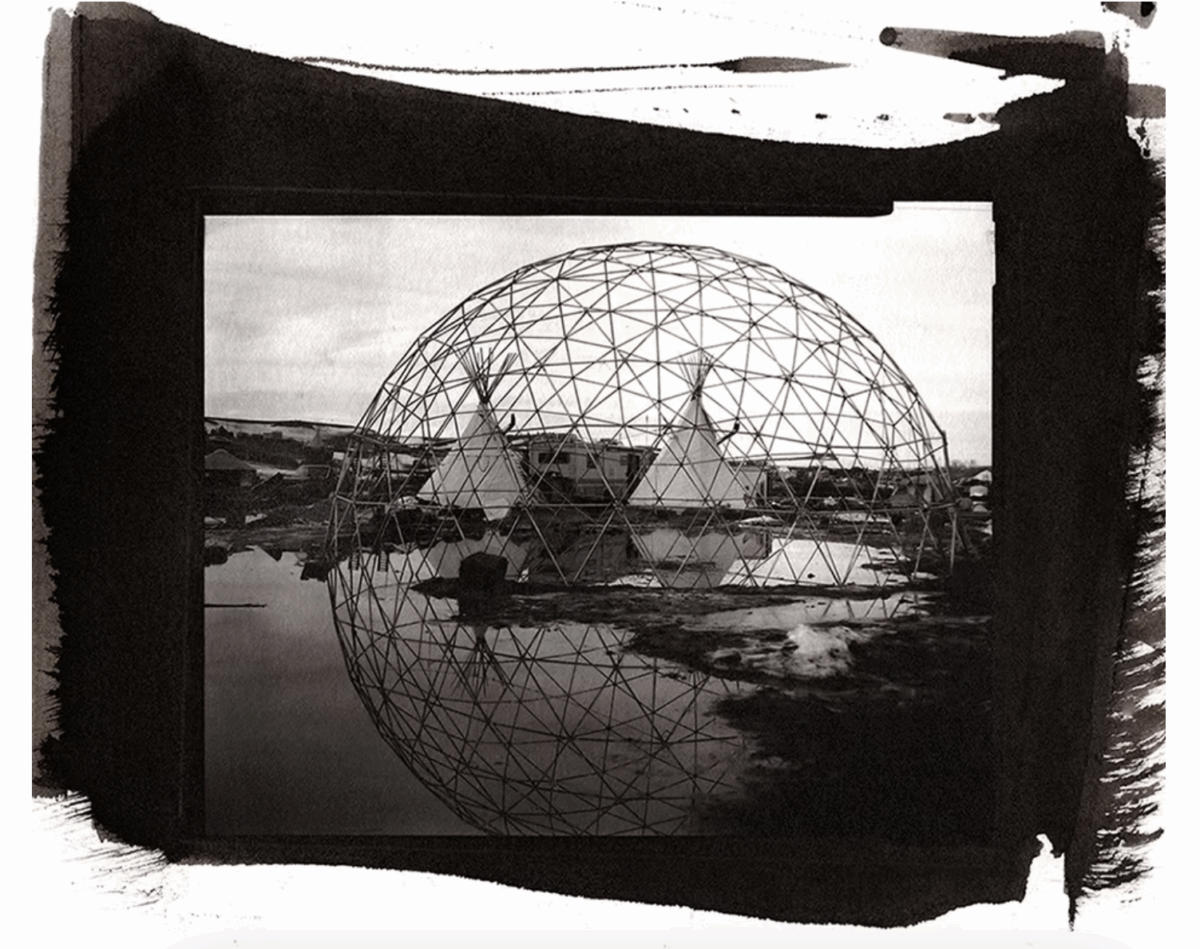
from Water Protectors © Alexandra McNichols-Torroledo
The Enduring Image: Alexandra McNichols-Torroledo’s Visual Narratives of Resilience
Alexandra McNichols-Torroledo stands as a compelling voice in contemporary photography, her eye and creative practice is turned toward the complicated tapestry of human experience with immigration, environmental urgency, and cultural preservation. Over the last decade, McNichols-Torroledo, a Colombian-born artist, has focused her work on the indigenous communities of North and South America who protect sacred plants, water, and the rainforest. Her photographic work skillfully and sensitively combines artistic and documentary approaches. These projects offer a profound exploration of identity, displacement, and the enduring resilience of these communities.
A prime example is her project and exhibition “ESX/COCA.” McNichols-Torroledo’s work directly confronts and deconstructs colonial and postcolonial narratives. This project acts to reclaim the narrative of the coca plant, long demonized and targeted for destruction due to its relationship to cocaine production (in the Nasa Yuwe language, ‘Esx’ means Coca leaves). Through portraits taken at the Wasak Kwewesx School in Colombia’s Nasa indigenous reservation, McNichols-Torroledo illuminates the plant’s sacred and medicinal status and its integral role in Nasa culture, where children are educated in ancient rites related to coca. The use of platinum-palladium printing on handmade paper created from coca leaves further reinforces this reclamation, literally embedding the plant’s essence into the artwork. McNichols-Torroledo says these prints “pay tribute to the long history of struggles by the indigenous in the Andes to defend the coca plant and other aspects of their cultural heritage.” This powerful choice serves as a tribute to what the Inca called the “divine leaves of immortality” and the unwavering efforts of indigenous communities in the Andes to defend their heritage against centuries of oppression.
Similarly, platinum-palladium prints on paper and canvas were chosen for portraits of Dakota Access Pipeline protesters, the Water Protectors. Her canvas works are evocative of the protestors’ tepees, and draw a direct line between the historical struggles of the Dakota-Lakota against colonization and their contemporary fight to protect their reservation at Standing Rock and the Missouri River from the Dakota Access Pipeline spills. The canvas prints are presented by suspending them from rope or chords anchored at the edges or corners, much like how a teepee would be secured. The project firmly and evocatively emphasizes how indigenous peoples around the world have faced an ongoing cycle of being controlled and fighting back.
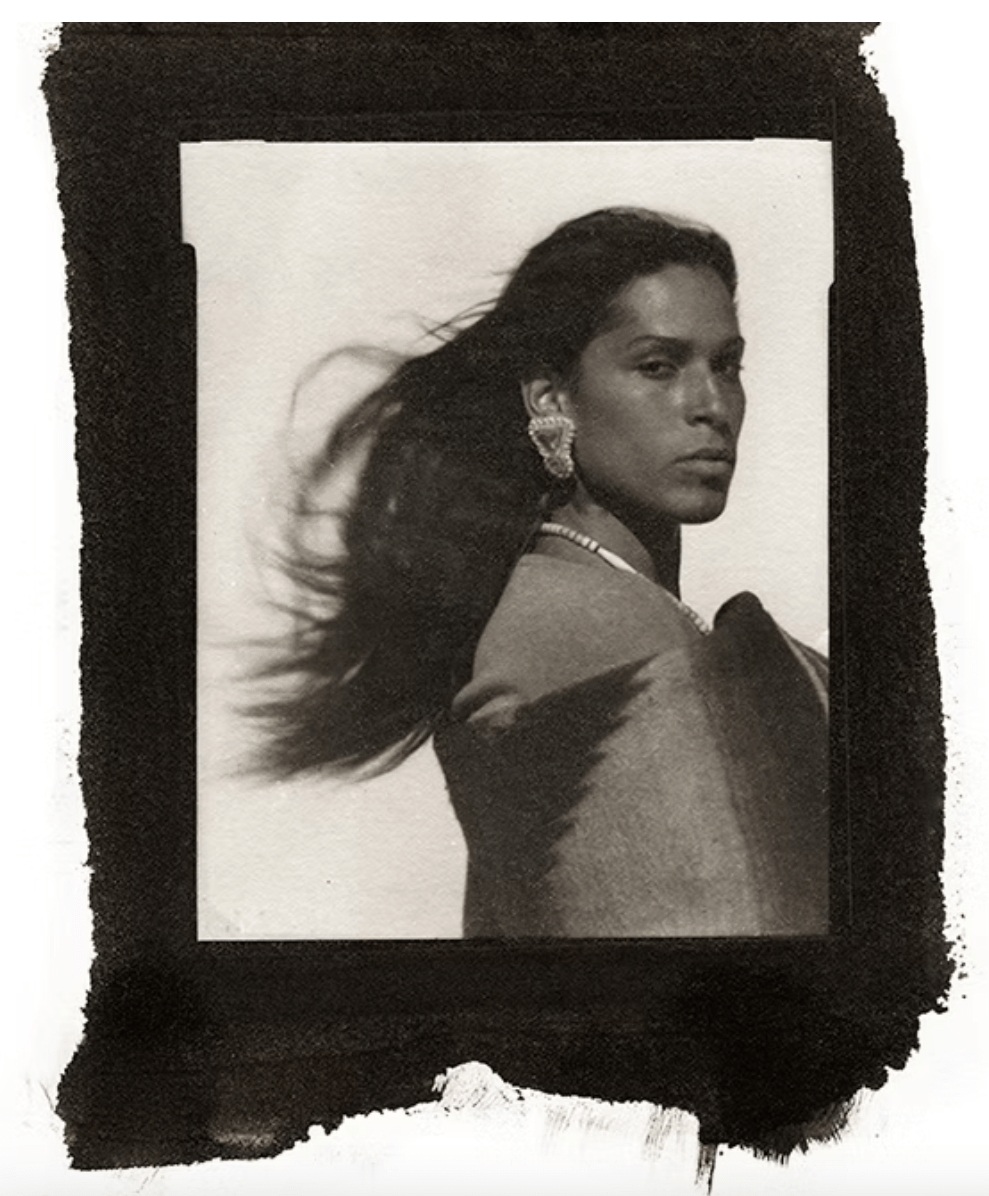
from Water Protectors © Alexandra McNichols-Torroledo

from Water Protectors © Alexandra McNichols-Torroledo

from ESX/COCA © Alexandra McNichols-Torroledo
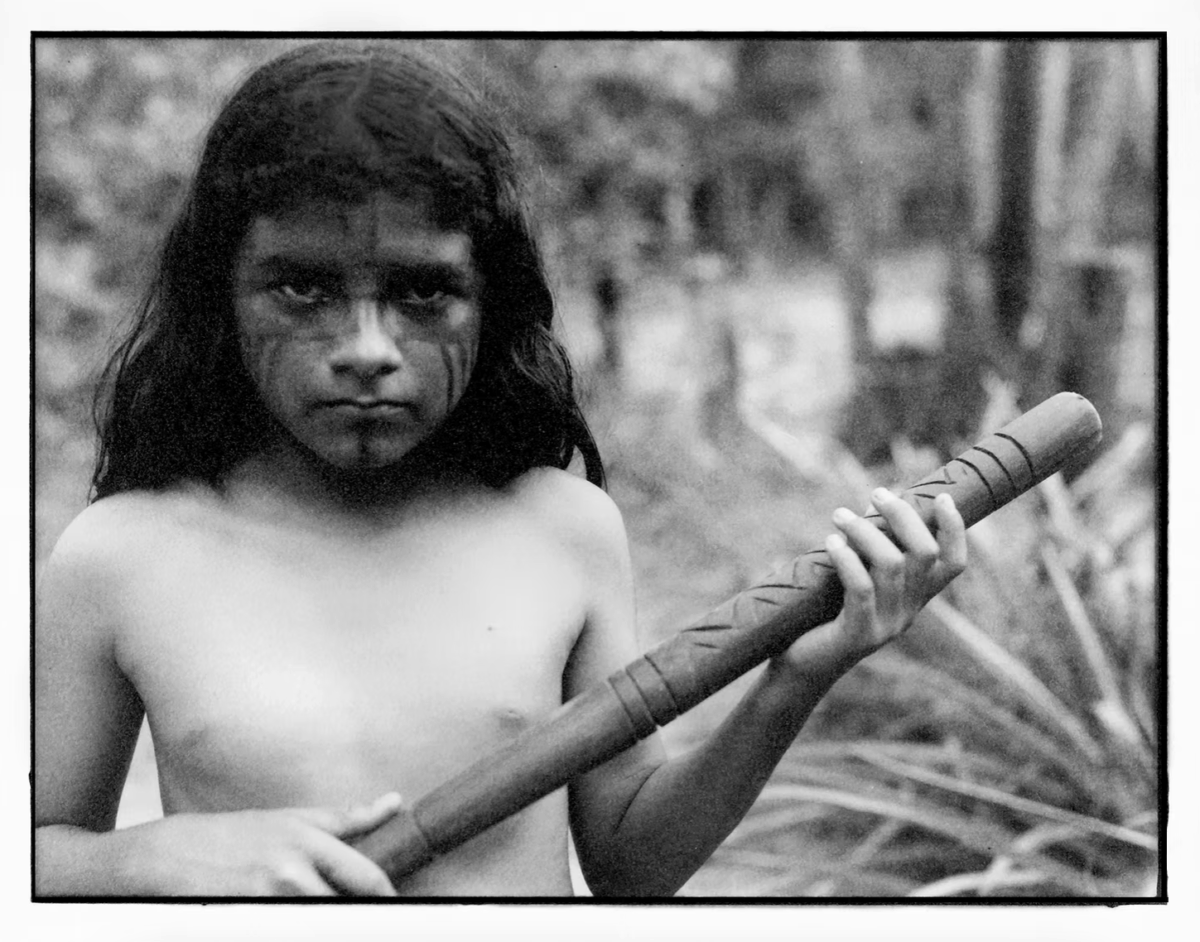
from Mura Amazon Rainforest © Alexandra McNichols-Torroledo
McNichols-Torroledo often employs a blend of alternative photographic processes alongside digital techniques. The deliberate choice to produce handmade photographs is more than an aesthetic choice; it’s a powerful narrative tool. McNichols-Torroledo connects historical contexts with contemporary realities, emphasizing the enduring nature of certain struggles. Her use of large format cameras, and her choice to print on diverse materials like coca leaf fiber paper, stone, trees, cotton and canvas, speak to a deep commitment to both craft and thematic relevance. These beautiful contact prints are beautiful to see in person and draw in the viewer, and that closeness fosters a deeper connection. This choice of media allows her to forge a tactile connection between the viewer and the subjects, instilling each piece with a palpable sense of history and reverence. McNichols-Torroledo’s practice draws on the strength of incorporating the sculptural and tangible aspects of materials chosen, like wooden planks or felled trees, to make her portraits of people in the Amazon whose lives are directly impacted by deforestation. Portraits of people being physically connected, literally fixed in a photograph upon the disappearing trees is a powerful metaphor.
The deeply personal experiences of Alexandra McNichols-Torroledo as a Colombian woman who endured armed conflict profoundly influence her work. This is powerfully witnessed in “Stone Faces/Rostros en Piedra,” a project born from her solidarity with women who have migrated to escape persecution. These portraits, printed on stones and supported by rusted steel bases, are more than mere images; they are stelae, echoing the ancient Mayan tradition of carving important figures into stone. Each woman symbolizes a broader struggle against political and religious repression, gender violence, racism, apartheid, antisemitism, fascism, and war, “drawing connections to global conflicts from Palestine, Ukraine and Iran to the Holocaust,” McNichols-Torroledo says. By portraying many subjects in traditional clothing, McNichols-Torroledo emphasizes their enduring ties to their cultural roots, highlighting the collective strength of persons living in exile, yet fighting for universal rights and world peace. Here again, the historical references in materials and permanence of the stone and rusted steel serves as a poignant metaphor for the lasting impact of displacement and the resilience required to overcome it.
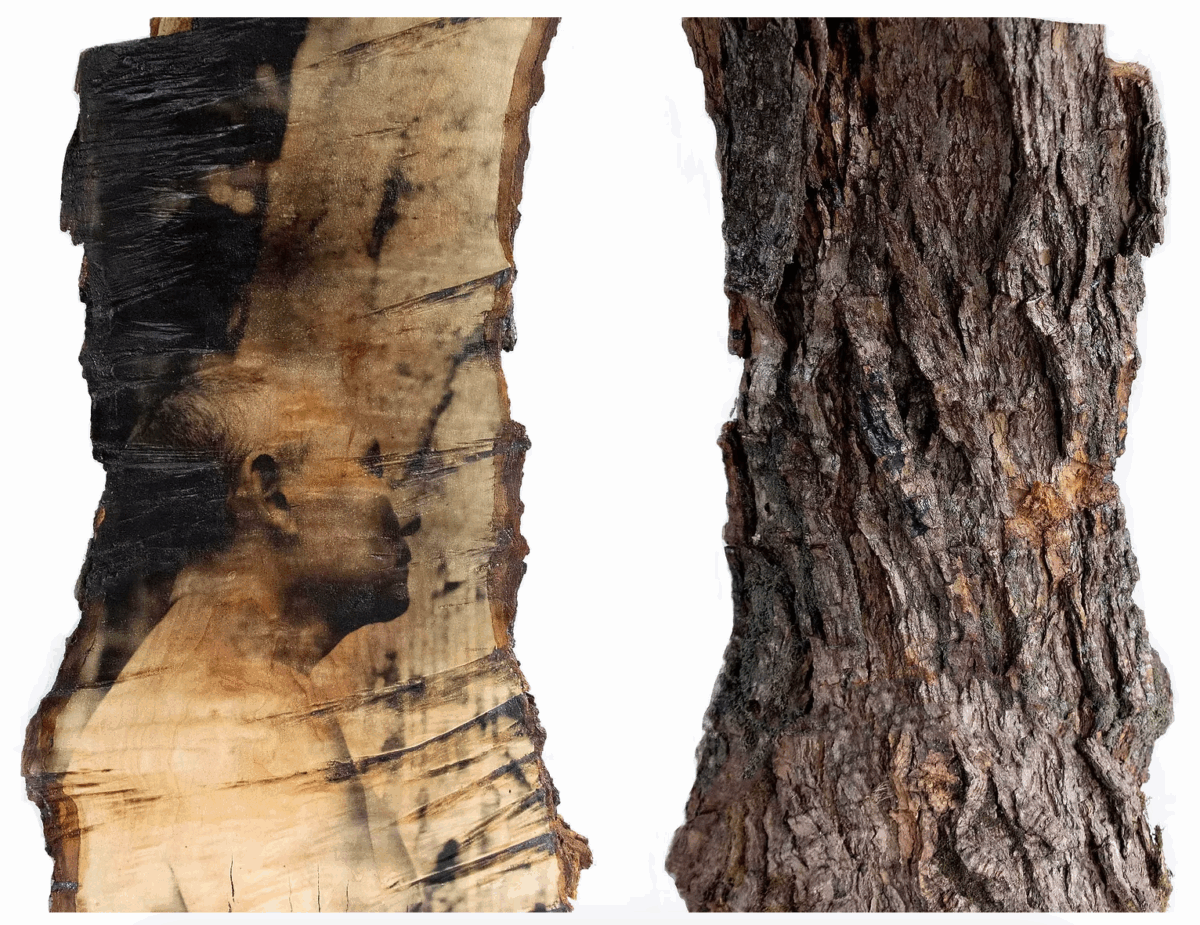
Photograph on wood (front and rear view) – Nukak Indigenous portrait from The Amazon Rainforest Deforestation project © Alexandra McNichols-Torroledo
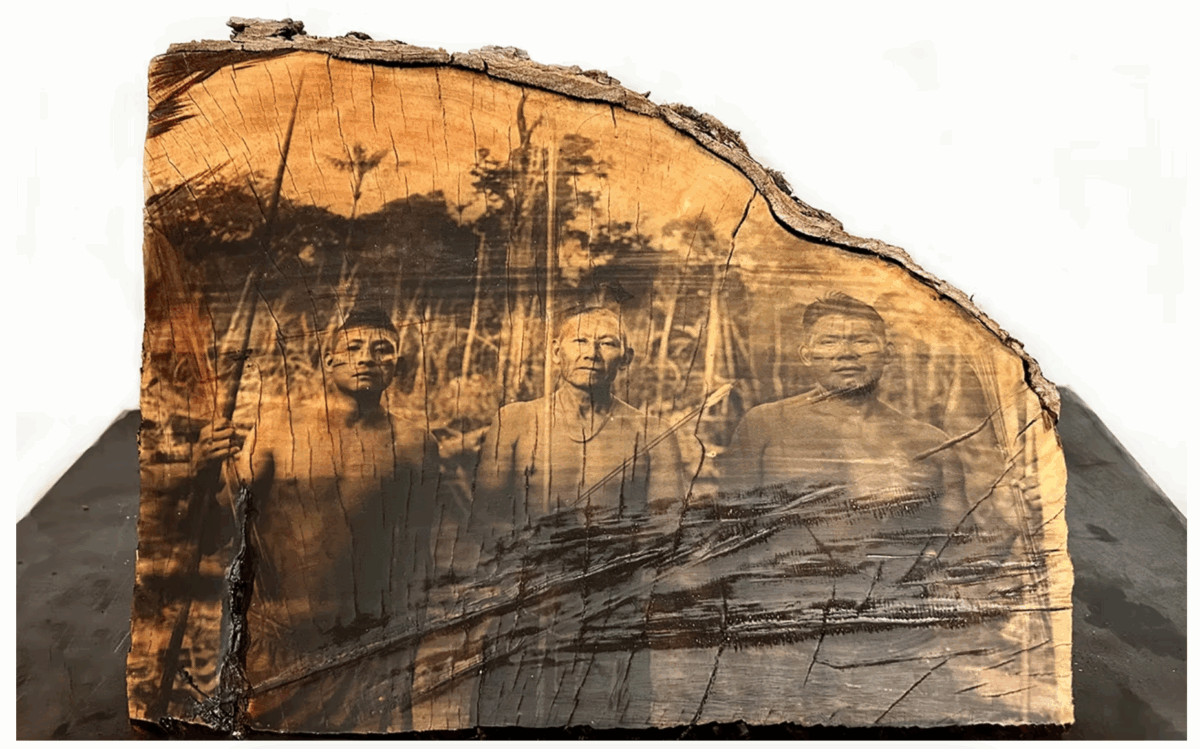
Photograph on wood, Nukak Indigenous portrait from The Amazon Rainforest Deforestation project © Alexandra McNichols-Torroledo
A significant portion of McNichols-Torroledo’s recent work is dedicated to the urgent global concerns of environmental justice and indigenous rights. Her forthcoming “ceremonial circle installation of the Guardians of the Amazon” exemplifies this commitment. Here, photo-sculptures of the Nukak and Mura indigenous peoples, who are actively reforesting and protecting the Amazon, are printed on a tree stump rescued from tornado damage in Indiana. The rising severity of such storms in the American Midwest has been attributed in part to climate change. This poignant use of salvaged material directly connects the impact of climate change in Indiana to the distant struggles in the Amazon. “I printed their photos in a tree I rescued by using an alternative process with liquid emulsion in my darkroom,” McNichols-Torroledo recounts.
This dedication to environmental advocacy is deeply rooted in projects like “The Fight for the Amazon Rainforest/Tandamorys Kyrraú,” where she collaborated with the Mura Indigenous people of Itaparana. This ancestral community, with a history of resisting Amazon deforestation for centuries, now faces illegal land grabbers and mega-projects that threaten the “lungs of the Earth.” McNichols-Torroledo’s inclusion of digital photographs and a video, edited in part with footage shot by the Mura people themselves using equipment she donated, after teaching them in a workshop how to take photos and videos by using a drone. This highlights her collaborative and empowering approach, amplifying and empowering indigenous voices in the fight to save the rainforest.
Over the course of my interview with McNichols-Torroledo, her passion and advocacy for these vital causes was easily apparent. Her artistic strength lies not just in her masterful choices of traditional and contemporary photographic techniques, but in her persistent pursuit of using her art as a powerful tool for meaningful communication and change. Through each carefully crafted image, McNichols-Torroledo’s work connects to viewers both personally and globally. The work documents critical environmental and human rights issues and actively champions the resilience and ancestral wisdom of the people directly impacted. Her work serves as an urgent and beautiful reminder of our collective responsibility to protect our planet and its diverse cultures.
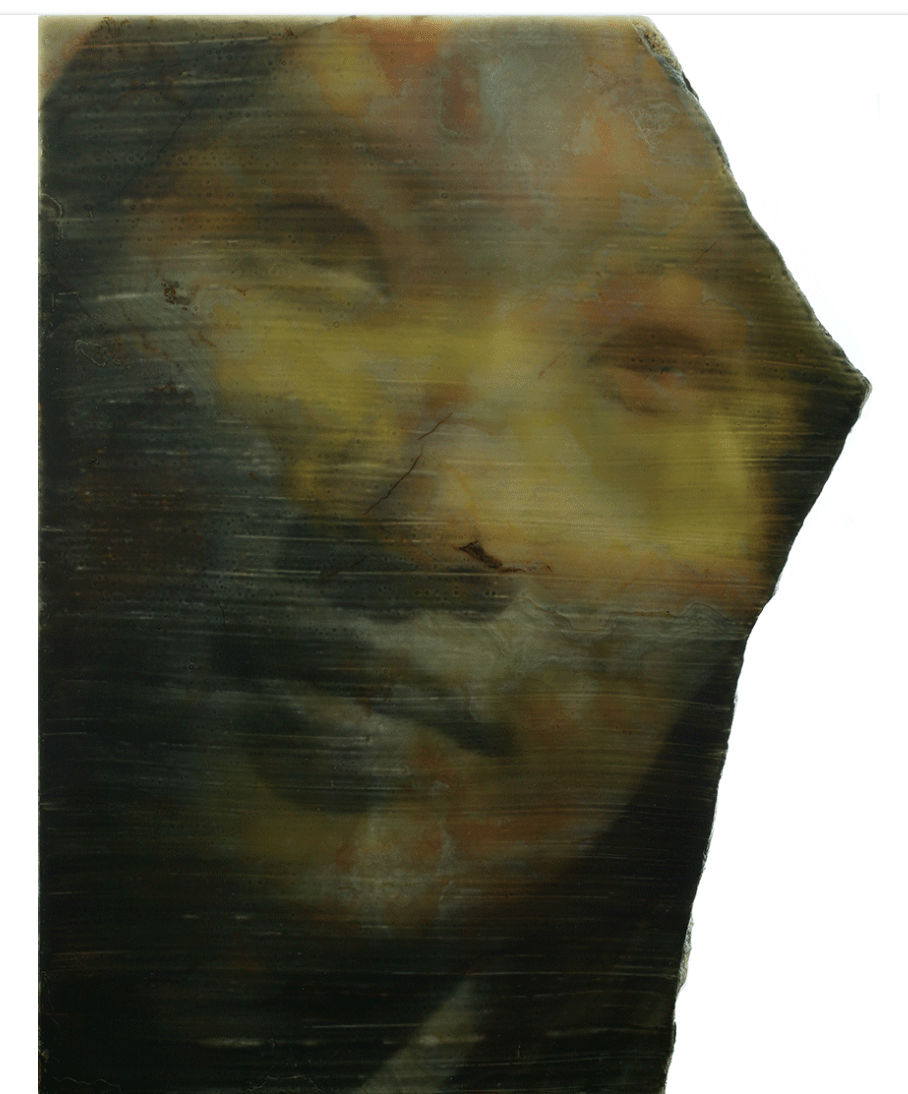
from Stone Faces © Alexandra McNichols-Torroledo
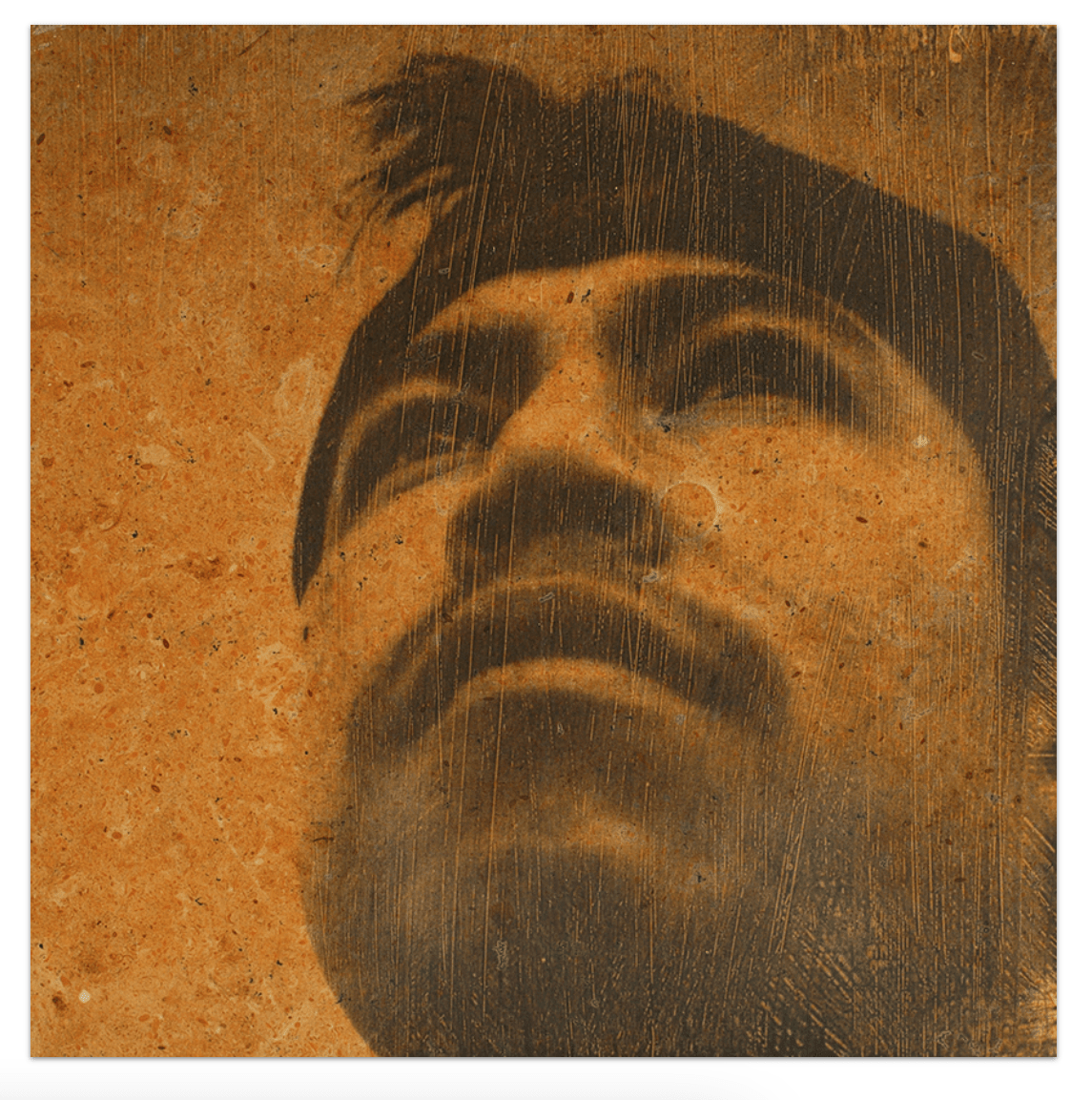
from Stone Faces © Alexandra McNichols-Torroledo
::
Alexandra McNichols-Torroledo is a Colombian-American photographer based in Indiana. Her work bridges the fields of artistic and documentary photography using a range of digital and alternative photographic processes. Over time her focus has shifted from a personal exploration of her experiences as an immigrant in the United States to global concerns of cultural diversity and human rights in her native country. Since 2011, she has been documenting indigenous people in South and North America affected by mega-projects and violence that are imposed on their territories, changing their lives and cultural survival.
Her work has been exhibited and lectured in Brazil, United Kingdom, Colombia, the Dominican Republic, and America. She graduated from Indiana State University with an MFA in Photography and an MA in Hispanic Literature, and a BA in Communications and Journalism from Universidad Externado of Colombia. She has taught photography and alternative photographic processes in Colombia and America and written and photographed articles for El Espectador,The Guardian, Tribune-Star and SEMANA SOSTENIBLE. Her project, ESX/COCA was recently exhibited at the Aurora PhotoCenter in Indianapolis, where she will be teaching an upcoming workshop on platinum printing.
Events by Location
Post Categories
Tags
- Abstract
- Alternative process
- Architecture
- Archives
- Artist residency
- Artist Talk
- Biennial
- Black and White
- Book Fair
- Car culture
- Charity
- Childhood
- Children
- Cities
- Collaboration
- Community
- Cyanotype
- Documentary
- Environment
- Event
- Exhibition
- Faith
- Family
- Fashion
- Festival
- Film Review
- Food
- Friendship
- FStop20th
- Gender
- Gun Culture
- Habitat
- home
- journal
- Landscapes
- Lecture
- Love
- Masculinity
- Mental Health
- Migration
- Museums
- Music
- Nature
- Night
- nuclear
- Photomontage
- Plants
- Podcast
- Portraits
- Prairies
- Religion
- River
- Still Life
- Street Photography
- Tourism
- UFO
- Water
- Zine

Leave a Reply